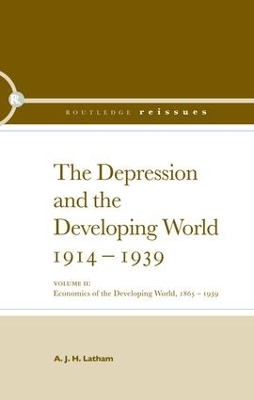Usual interpretations of the Depression stress the disruption in Europe caused by the Versailles Settlement, and the downswing in the United States centred on the Wall Street Crash. This book, however, suggests that the situation in Asia was as important as the situation in Europe or the USA.
The book examines the economic experience of Asia and Africa from 1914 to 1939 and looks at the influence of the developed world upon these two continents, showing how events there affected the entire international economy. In particular it suggests that the economic progress of the 1920s caused the depression by creating overproduction of foodstuffs and raw materials. The communications improvements of these years are examined in detail, and the complex problems of the monetary systems of the developing countries are outlined together with the flow of capital to these areas, and its reversal in the 1930s. In the discussion on trade, the disappearance of Britain's surplus with these countries is stressed, as it weakened her international trading balance and contributed to the collapse of the Sterling in 1931.
First published in 1981, the book concludes that the overproduction of rice coupled with overproduction of wheat, forced down prices, thus causing the international agricultural depression. In turn, farm incomes fell and demand for industrial goods was destroyed across the world.
- ISBN10 1138865419
- ISBN13 9781138865419
- Publish Date 7 April 2015 (first published 14 September 2006)
- Publish Status Active
- Publish Country GB
- Publisher Taylor & Francis Ltd
- Imprint Routledge
- Format Paperback
- Pages 228
- Language English
